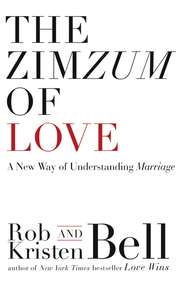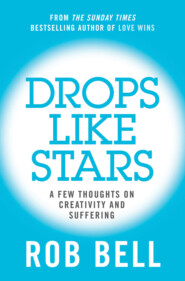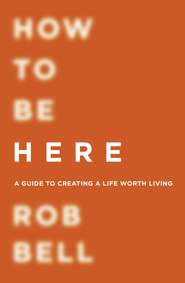По всем вопросам обращайтесь на: info@litportal.ru
(©) 2003-2024.
✖
The Complete Rob Bell: His Seven Bestselling Books, All in One Place
Автор
Год написания книги
2018
Настройки чтения
Размер шрифта
Высота строк
Поля
But notice the next verse: “Then Amnon hated her with intense hatred. In fact, he hated her more than he had loved her.”
What an odd thing for the writer to tell us. The last thing you would expect to hear is how Amnon is feeling, let alone that he feels hatred. We understand her repulsion, but his?
What is it about rape that provokes such disgust in him?
“He hated her more than he had loved her.”
What is it that makes Amnon go from one extreme to the other?
He gets what he wants and it makes him . . . angry? What is it that turns him so fast?
What is it about that line “more than he had loved her” that doesn’t ring true?
It’s lust.
Lust can drive us to do frightening things. It can own us, it can take up massive amounts of head space, and it can make us miserable.
And once in a while, lust may even have something to do with sex.
A Tree with a Long Name
In the beginning, in the opening pages of the Bible, we find God creating all sorts of trees.3 (#litres_trial_promo) They’re good for food and pleasing to the eye, and God wants them to be enjoyed. God creates this garden and places people in the middle of it because God wants these people to enjoy it. The word God uses for this is “good.” It’s all good from God’s perspective.
But for it truly to be good, it can’t be forced upon these first people. That wouldn’t be good. It has to be their choice. And so there’s a tree in the middle of the garden called the tree of the knowledge of good and evil.
A bit long for the name of a tree, but the idea is that there is another way for these people to live, outside of how God designed things. And if they eat the fruit of this particular tree, they’ll see what that other way is like, a way separated from the life of God.
And so we have a man and a woman in a garden, eating a piece of fruit. The text puts it like this: “When the woman saw that the fruit of the tree was good for food and pleasing to the eye . . . she took some and ate it.”4 (#litres_trial_promo)
We’re told that the fruit engages her senses:
she sees
she notices
she appreciates
she takes
she eats
Her sight, her touch, her senses of smell and taste are all involved.
Our senses are incredibly strong.
Maybe it’s her perfume
or the feel of that fabric
or how these have a particular shape and form
or what it feels like to open a package of those.
Smoking isn’t just about nicotine, is it? It’s about opening a new pack, the feel of the paper, the smell of the cigarette. Fishing isn’t just about fish. It’s about the rocking of the boat and the morning air and what’s in the cooler. Shopping isn’t just about new clothes. It’s about the tags and the fabrics and the sound of the hangers sliding on the rack.
We are sensory creatures.
My brother just got a new Apple computer. Several of us were there when he opened it, and we were so into it that we were actually handing the various parts around the room. If you have taken part in this particular ritual, then you know that Apple ships everything in white and silver bags and liners that would make dirt look attractive. We were even passing the power cord around the room, admiring its design.
Were we losing our minds? The power cord?
The designers at Apple understand something significant about what it means to be human: we are hardwired to appreciate sensory experience.5 (#litres_trial_promo)
Texture, shape, color, feel, aroma.
The things God creates in Genesis are “pleasing to the eye.” We have an ingrained sense of appreciation for how things look and feel and smell because God has an appreciation for how things look and feel and smell. We bear the image of our maker.
The problem for Adam and Eve isn’t the food. There’s nothing inherently wrong with the food. The food is good. This is what Eve notices about it, that it’s “good for food.” It’s created by God for the enjoyment of people. The same goes for most of the things and people we lust for. In most cases, there’s nothing wrong with them inherently—
her body,
that product,
this food.
The problem for Adam and Eve is what the fruit has come to represent. Rebellion against God. Rejection of the good, the true, and the beautiful. Another way.
This is really about that.
If I Just Had . . .
The appeal to Eve’s senses comes with a promise that the fruit will deliver something it can’t—specifically, a better reality than the one God has made. The problem isn’t the fruit. It’s what is promised through the fruit—that she won’t die if she eats it. The problem is that she’s told, “When you eat of it . . .” and then she’s told things that aren’t true. Promises are made to her that the temptation can’t come through on. It’s a lie.
Lust promises what it can’t deliver.
By giving in to the temptation, Adam and Eve are essentially claiming that God isn’t good. They’re giving in to the deception that good is possible apart from God, the source of all good. The scriptures call this being separated from “the life of God.”6 (#litres_trial_promo) When these first people eat the fruit, it isn’t about the fruit, it’s about their dissatisfaction with the world God has placed them in.
Creation isn’t good enough for them.
From their perspective, their place in the midst of it isn’t good enough. And so they eat the fruit and everything falls apart. They’re tempted with something that promises what it can’t deliver, and they live with the consequences.
Lust comes from a deep lack of satisfaction with life. This is why we have to slow down and reflect on our lives before we’ll ever begin to sort out the significance of this. Lust often starts with a thought somewhere in our head or heart: “If I had that/him/her/it, then I’d be . . .”
When we’re not at peace, when we aren’t content, when we aren’t in a good place, our radar gets turned on. We’re looking. Searching. And we’re sensory creatures, so it won’t be long before something, or somebody, catches our attention.
And it always revolves around the “if,” doesn’t it?
If I just . . .











